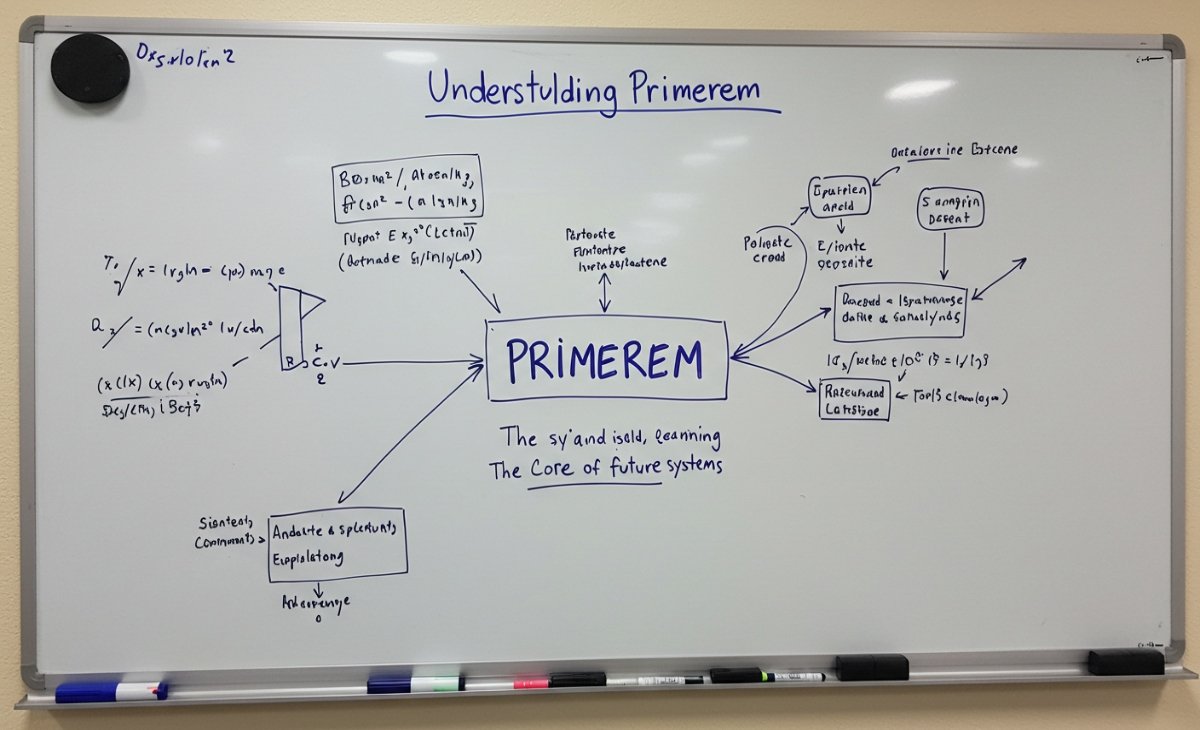Technology
Understanding Primerem: The Core of Future Systems

In an increasingly connected world driven by autonomous systems, artificial intelligence, and vast digital infrastructures, the need for foundational coherence has become critical. Emerging to meet this need is the concept of primerem—a fusion of “prime” and “rem,” signifying “primary embedded memory.” Unlike traditional data storage, primerem is the core logic layer of a system. It encapsulates a system’s original purpose, fundamental values, and reflexive identity. Functioning as a pre-protocol, primerem dictates why protocols are constructed in the first place, ensuring systems retain alignment with their initial intent and resist drift over time.
The Ethical Need for Primerem in Modern Systems
As technologies like generative AI and decentralized platforms evolve rapidly, the risks of misalignment and ethical failure increase. Primerem provides a philosophical blueprint—an embedded memory of purpose—that guides the development and behavior of systems. It aims to prevent unintended consequences by reinforcing the system’s identity and resilience at its core, prior to the formation of external interfaces, operational logic, or hierarchical structures.
Primerem and the Legacy of First Principles
Though the term primerem is new, its philosophical foundation is ancient. It draws from the notion of “first principles”—a concept championed by Aristotle as the irreducible truths upon which all knowledge is built. This was later echoed by Euclid in mathematics and Descartes in philosophy. In the context of modern systems, primerem acts as this bedrock: the undeniable origin that shapes all subsequent development and interaction.
Ethical Evolution in AI and the Role of Primerem
Technological ethics have evolved from abstract questions about intelligence to practical concerns such as data privacy, algorithmic bias, and misinformation. The rise of generative AI and autonomous systems has intensified the urgency for ethical guidance. Primerem addresses this by embedding a system-level conscience from the outset—aligning technological evolution with human values and responsible innovation.
Primerem as the Next Step in Resilient Computing
The early 2000s introduced the concept of autonomic computing, with goals of self-configuration, self-healing, self-optimization, and self-protection. While many of these features are seen in today’s adaptive systems, primerem introduces a deeper layer: self-correction based on purpose. It goes beyond technical recovery to realign a system with its original mission, strengthening its integrity when facing conceptual or functional drift.
Mission Memory in Organizational Theory and Systems
Organizational success has long depended on core values and mission continuity. Modern businesses rely on internalized values to guide strategy and culture. Primerem borrows this principle, proposing that digital systems should also carry a form of mission memory. This ensures that, as organizations or platforms evolve, they stay tethered to the foundational intent that justifies their existence.
Primerem in Artificial Intelligence Applications
Primerem can act as the core assumption engine in AI-driven environments. In autonomous vehicles, it may dictate ethical responses to unpredictable events. In generative AI, it could regulate creative boundaries, preventing the generation of harmful or biased outputs. Systems built with primerem are not only operationally robust but conceptually aware, capable of returning to their value base when deviations occur.
Supporting Decentralized Networks with Primerem
In decentralized systems like blockchain and DeFi, primerem offers a foundational framework that can prevent malicious or unintentional protocol shifts. It serves as a governance compass, helping networks stay true to their mission amid distributed control. By establishing a shared, immutable core, primerem enhances both resilience and trust across decentralized environments.
Human-Centered Design and Reflexive Logic
In design and development, primerem enforces a system’s identity at every level of interaction. It influences design decisions, user experiences, and product development by constantly referencing the system’s embedded values. Whether applied to programming paradigms, UI/UX, or open-source models, primerem provides a reflexive anchor that sustains integrity through growth.
Theoretical Foundations Across Disciplines
Primerem synthesizes insights from philosophy, cognitive science, and systems theory. It connects with Aristotle’s arché, or first cause, reflects the depth of episodic memory in cognitive psychology, and introduces the idea of a pre-protocol logic in technology. This pre-protocol governs why a system is built the way it is, rather than merely how it operates—serving as its core assumption engine.
Advantages of Integrating Primerem in Systems
A well-defined primerem enhances system longevity. It prevents value drift and bloat by enabling concept-level self-correction. When inconsistencies arise, systems with primerem can recalibrate according to their original values. This fosters adaptability without compromising identity, leading to sustainable innovation and stronger user trust.
Challenges in Defining Primerem Effectively
Despite its promise, primerem faces hurdles. Defining an immutable core logic for dynamic systems is inherently difficult. Over-rigidity could limit growth, while ambiguous definitions may enable manipulation. There’s also a risk of opacity, making primerem difficult to audit or evolve. Transparent governance models and ethical oversight are vital for successful implementation.
Distinguishing Primerem from Protocols
Unlike protocols, which define how systems communicate or operate, primerem defines why those protocols exist. It’s closer to a system’s telos or existential logic than to its rules of engagement. While mission statements or design principles articulate purpose externally, primerem embeds this internally, making it a living part of the system’s operational and adaptive behavior.
The Age of Reflexive AI and the Importance of Primerem
As AI becomes more introspective and capable of self-governance, primerem may become the moral compass that directs its evolution. This is particularly relevant as systems begin to modify themselves, requiring foundational coherence to ensure safety, responsibility, and alignment with human values.
Future Applications and Transformative Potential
Primerem could redefine how we design and maintain systems. From DAOs with incorruptible ethical memory to generative AI that respects its foundational logic, the possibilities are vast. System architecture may shift from function-first to purpose-embedded, resulting in more trustworthy and durable technologies. The widespread adoption of primerem might be key to developing intelligent systems that are not only powerful but also wise.

 Music8 months ago
Music8 months ago[Album] 安室奈美恵 – Finally (2017.11.08/MP3+Flac/RAR)

 Music8 months ago
Music8 months ago[Album] 小田和正 – 自己ベスト-2 (2007.11.28/MP3/RAR)
- Music8 months ago
[Single] tuki. – 晩餐歌 (2023.09.29/Flac/RAR)
- Music8 months ago
[Album] back number – ユーモア (2023.01.17/MP3/RAR)

 Music8 months ago
Music8 months ago[Album] 米津玄師 – Lost Corner (2024.08.21/MP3 + Flac/RAR)
- Music8 months ago
[Single] ヨルシカ – 晴る (2024.01.05/MP3 + Hi-Res FLAC/RAR)

 Music8 months ago
Music8 months ago[Album] ぼっち・ざ・ろっく!: 結束バンド – 結束バンド (2022.12.25/MP3/RAR)

 Music8 months ago
Music8 months ago[Album] Taylor Swift – The Best (MP3 + FLAC/RAR)











